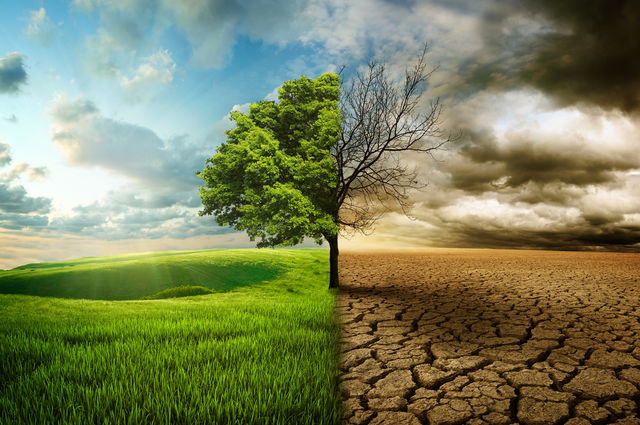The solutions nature provides: how can hotels contribute and benefit?
24 experts shared their view
Nature and its ecosystem services are at the center of the hospitality business proposition: from food and beverage offers to guests' enjoyment of natural landscape at a destination. Nature is not only a 'capital' component available to businesses, but a source of solutions to mitigate and adapt to climate change and protect biodiversity while ensuring the well-being of staff and guests alike. Nature is a prerequisite for a successful business, however, a 40% drop in natural capital per person has been recoded over the past two decades (Dasgupta, 2021). 'Burning' though this inventory of natural capital without a regeneration plan should result in alarm bells ringing. As the Science-Based Target Networks summarizes: "Nature is the backbone of human well-being and the foundation for all economic activity" (SBTN, 2020, p.2). Considering the value of nature to the hospitality industry and the threat of biodiversity collapse, recording and accounting for natural capital and integrating the outcome into the decision-making processes while setting regeneration targets is crucial. Ahead of the official launch of the Decade on Ecosystem Restoration (on World Environment Day, June 5th) by the United Nations, here are a three questions to tackle ((choose one or answer all, sharing of best practices is welcomed):
- Hotels located in urban settings: which nature-based solutions result in value added to guests, staff, owners and community?
- Hotels located in natural settings (e.g. forest, coastline): what actions can be undertaken to maintain or restore the ecosystems?
- Cooperation/Support for greater impact: where can hoteliers obtain help, support or join forces to achieve results
References
- Dasgupta, P. (2021), The Economics of Biodiversity: The Dasgupta Review, London: HM Treasury.
- SBTN (2020). Science-Based Targets for Nature: Initiatil Guidance for Business. Science Based Tageets Network.
- Tew, N.E., Memmott, J., Vaughan, I.P., Bird, S., Stone, G.N., Potts, S.G., and Baldock, K.C.R. (2021). Quantifying nectar production by flowering plants in urban and rural landscapes. Journal of Ecology, 109(2). https://doi.org/10.1111/1365-2745.13598
Hotels, The New Community Beacon
When I took note of the topic of this new viewpoint, I felt compelled to step out of my office to go immerse myself in nature to ponder on it. As I was walking mindfully along the banks of the nearby swamp on a sunny spring day, surrounded with blossoming fragrant trees and lulled by the birds' warbling, a delightful sense of serenity and bliss took hold of me. I found a secluded spot where I sat down quietly for long minutes to take some deep breaths and merge with my environment. This simple yet essential mind-body-soul experience allowed me to quiet my mind and gain clarity and focus, provided inspiration, enhanced my creativity, reduced my blood pressure and stress hormones, and put me back in sync with the rhythm and wisdom of nature, and fostered feelings of compassion and belonging.
As human beings, we have an innate tendency to connect with nature and every life form. Nature heals us. I could go on and on about the countless benefits that nature has on our physical and mental health and wellbeing, or the “complementary services” provided by natural ecosystems that make our very life on earth possible. But there is no need for further explanations as all of us can intuitively know, sense, and feel how much we long for nature, how much we belong to it, how much we need it. We are nature. We are not separated from it. And the recent pandemic reminded us how interdependent and interrelated we all are.
From the awareness and the awakening that derives from this realization, we start to transform ourselves and our mindsets shift. Rationally we start thinking in systems just like nature does. But most importantly, this realization activates our heart and awakens a deep sense of care, compassion, and love for every living being. As a result, we understand that our role is to contribute positively to the whole community of life, enhancing human and natural potential.
Travelling offers us the opportunity to slow down, get away from our daily routine, enjoy the simple things, and reconnect with nature, and be filled with wonder at its beauty, diversity, and complexity. The hospitality industry should leverage the powerful experience of travel to achieve the long-term transformation of human behaviors we need to regenerate our planet.
Through awe-inspiring – yet educative - experience, hotels can foster a sense of will and agency among the guests that will last long after their stay. Every touchpoint of the guest journey – from design to activities, to F&B and Spa menus, to the interactions with the staff and other guests - should be carefully crafted to induce a sense of ease, wellbeing, and reconnection and allow for deeper reflection and awakening.
The language and stories hotels use to communicate should speak to the head and activate the heart to arouse interest, trigger emotions, and facilitate the moving into action. It will enhance the guest experience, increase a sense of satisfaction and fulfillment, and promote a sense of purpose and meaning as the guests will identify with your brand values. If done smartly, hotels can build a strong relationship with their guest before, during, and after the stay and turn their guests into sustainability ambassadors. This will generate positive word-of-mouth, increase brand loyalty, employee satisfaction, and engagement, eventually translating into a higher ROI. It is a win-win-win situation for every stakeholder - including nature – and proof that love and care make good business sense.


